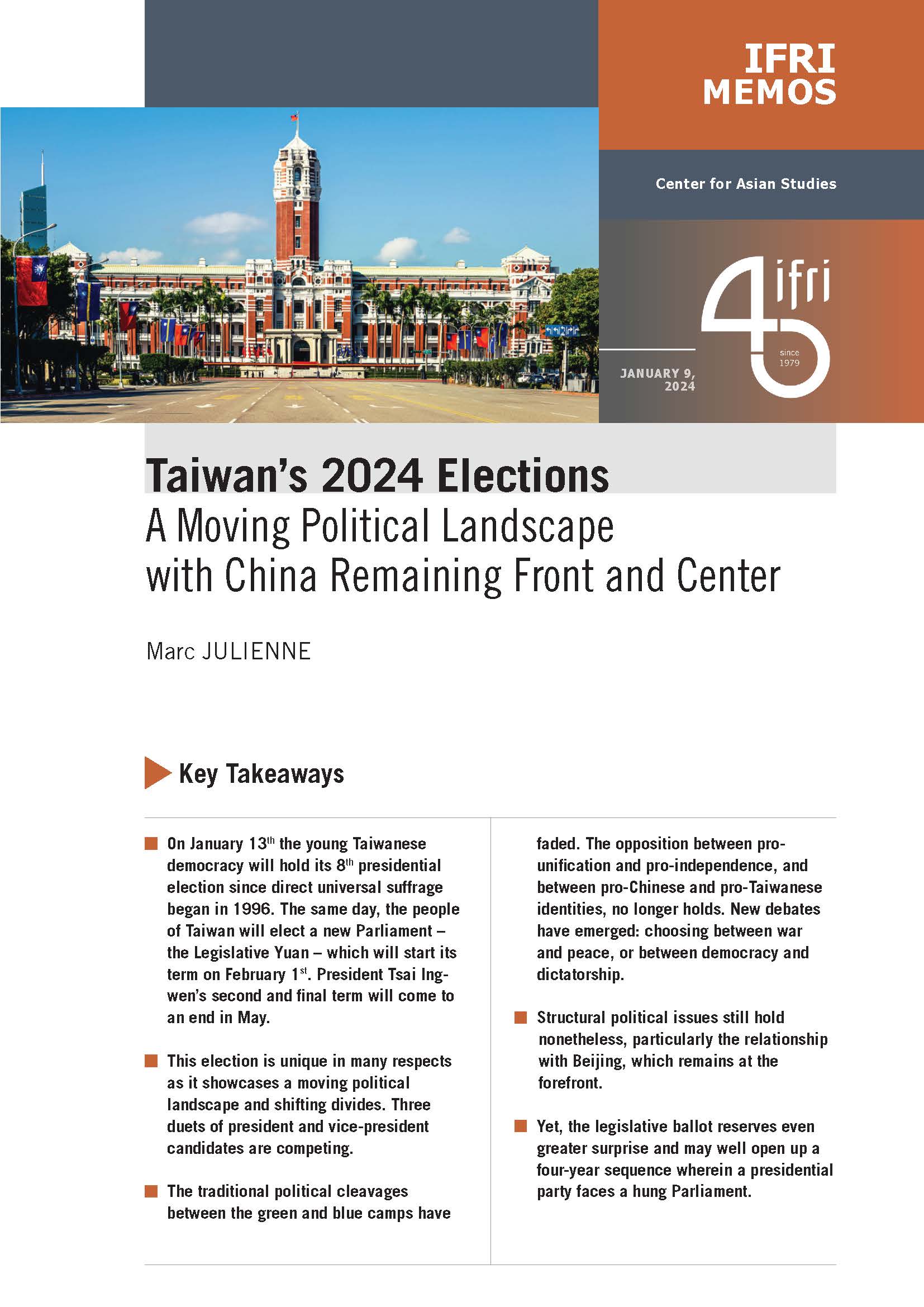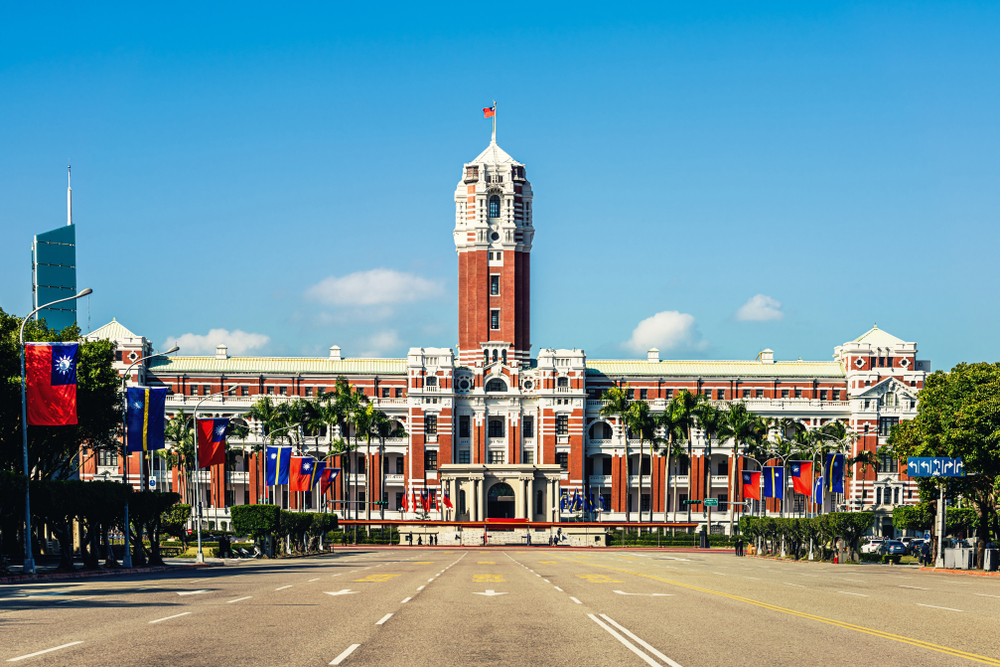Taiwan’s 2024 Elections: A Moving Political Landscape with China Remaining Front and Center

On January 13th the young Taiwanese democracy will hold its 8th presidential election since direct universal suffrage began in 1996. The same day, the people of Taiwan will elect a new Parliament – the Legislative Yuan – which will start its term on February 1st. President Tsai Ingwen’s second and final term will come to an end in May.

This election is unique in many respects as it showcases a moving political landscape and shifting divides. Three duets of president and vice-president candidates are competing.
The traditional political cleavages between the green and blue camps have faded. The opposition between pro-unification and pro-independence, and between pro-Chinese and pro-Taiwanese identities, no longer holds. New debates have emerged: choosing between war and peace, or between democracy and dictatorship.
Structural political issues still hold nonetheless, particularly the relationship with Beijing, which remains at the forefront.
Yet, the legislative ballot reserves even greater surprise and may well open up a four-year sequence wherein a presidential party faces a hung Parliament.

Available in:
Regions and themes
ISBN / ISSN
Share
Download the full analysis
This page contains only a summary of our work. If you would like to have access to all the information from our research on the subject, you can download the full version in PDF format.
Taiwan’s 2024 Elections: A Moving Political Landscape with China Remaining Front and Center
Related centers and programs
Discover our other research centers and programsFind out more
Discover all our analyses
RAMSES 2024. A World to Be Remade
For its 42nd edition, RAMSES 2024 identifies three major challenges for 2024.
France and the Philippines should anchor their maritime partnership
With shared interests in promoting international law and sustainable development, France and the Philippines should strengthen their maritime cooperation in the Indo-Pacific. Through bilateral agreements, expanded joint exercises and the exchange of best practices, both nations can enhance maritime domain awareness, counter security threats and develop blue economy initiatives. This deeper collaboration would reinforce stability and environmental stewardship across the region.

The China-led AIIB, a geopolitical tool?
The establishment of the Asian Infrastructure Investment Bank (AIIB) in 2016, on a Chinese initiative, constituted an attempt to bridge the gap in infrastructure financing in Asia. However, it was also perceived in the West as a potential vehicle for China’s geostrategic agendas, fueling the suspicion that the institution might compete rather than align with existing multilateral development banks (MDBs) and impose its own standards.
Jammu and Kashmir in the Aftermath of August 2019
The abrogation of Article 370, which granted special status to the state of Jammu and Kashmir (J&K), has been on the agenda of the Bharatiya Janata Party (BJP) for many decades.





